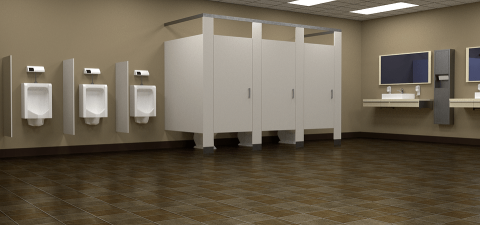
NYPD in the Bathroom - Exposure and Lewdness
A public restroom is almost an oxymoron. How can a place reserved for our most private moments be translated to a public facility? While there are certainly those who would take advantage of the vulnerabilities present in a private place in a public setting, there also exists an inherent potential for mistakes, misunderstandings, and misinterpretations.
Restroom rituals are among some of our most private and personal, so to examine them in the context of public communication is a flawed approach. For example, the Larry Craig scandal in 2007 involved now former Republican State Senator from Idaho, Larry Craig. Mr. Craig was in the bathroom at the Minneapolis-St. Paul International Airport when he engaged in some behavior that was interpreted by a police officer as an invitation to engage in anonymous sex in or through the stalls.
At first glance, this presentation of the facts paints a sordid and reprehensible scenario. However, closer examination of the sequence of events leads to more questions than answers. The arresting office in Mr. Craig’s case stated that he observed Mr. Craig tapping and moving his right foot in the stall. Mr. Craig then swiped his hand around the bottom of the stall. These gestures seem innocuous on their own, but the arresting officer claimed that these behaviors were known signals that a person used to initiate anonymous sex with a stranger in an adjacent stall.
Admittedly, it is suspicious that Mr. Craig performed any of these actions in a public restroom that was under investigation for complaints of sexual activity. But surely these actions alone would not otherwise be unambiguously indicative of anything more than simple restroom quirks. It is not unheard of that an innocent man might have tapped his foot on a bathroom floor without any untoward intent. It is not so outlandish to think that one might mistakenly swipe a stall while reach for toilet paper either. It is entirely possible that Mr. Craig knew what he was doing, particularly given the reputation of the bathroom in which he was arrested, but such is not the case in every arrest. It is also worth noting that Mr. Craig later plead guilty.
Herein lies the most dangerous result of laws defining exposure, public lewdness, or any of the related charges. Whether or not an individual is convicted, the stigma associated with a mere arrest for these kind of offenses is enough to convict a person in the court of public opinion. Mr. Craig did not run for reelection in 2008 and all but ended his career after the scandal. In fact, the average person even vaguely familiar with the case would not likely be able to recall anything about him other than the fact that he was arrested for some sort of sex-related offense in a public restroom, even though the statute under which he was convicted was not sex-related.
The risk of running afoul of a vaguely defined, broadly enforceable statute dealing with crimes related to exposure seems like it would increase greatly in a high-traffic public restroom. Consider a place like Grand Central or Penn Station, which serve anywhere from 750,000 to more than a million commuters in a single day. Inevitably, the facilities are constantly teeming with people coming and going, each engaging in their own personal and private restroom rituals. More eyes, more ears, more shuffling feet, and more swiping hands in every direction all exponentially increase the risk of mistakenly conveyed signals. This heightened scrutiny suggests that all it would take is one misperceived gesture to put a person’s entire career, family, friendships, and future at risk. In this way, police error or a moment of having a consensual interaction can destroy not only an individual’s reputation, but entire life.
